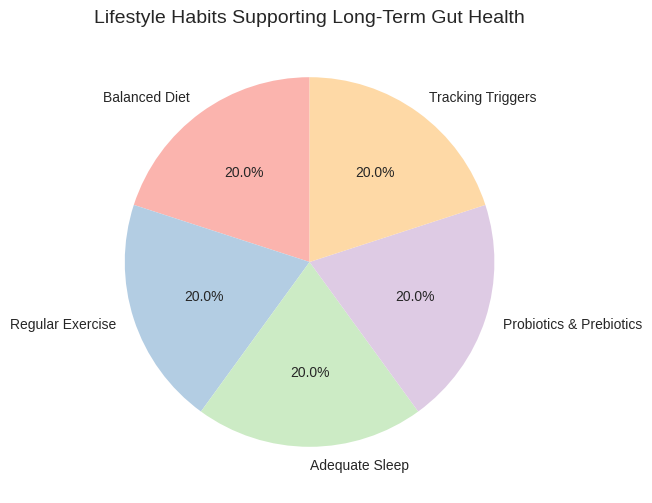How to Stop Diarrhea Fast: Over-the-Counter and Home Treatments
- Gut Brain Education
- Oct 14
- 5 min read
Diarrhea is a common digestive complaint that can disrupt daily life, whether it’s caused by a stomach bug, food intolerance, stress, or a chronic condition like Irritable Bowel Syndrome with Diarrhea (IBS-D). While most cases are short-lived, finding fast and effective relief is a top priority for many. This article explores the best over-the-counter (OTC) options, natural remedies, and alternative treatments for diarrhea, with a focus on gut health and the gut-brain connection. We’ll also highlight when it’s important to seek further evaluation and how to support your digestive system for long-term wellness.
What is Diarrhea?
Diarrhea is defined as loose, watery stools occurring more frequently than usual. It can be acute (lasting a few days) or chronic (lasting weeks or longer). Common causes include:
Infections: Viruses (like norovirus), bacteria (such as E. coli), or parasites.
Food intolerances: Lactose, fructose, or FODMAP sensitivity.
Medications: Antibiotics, certain antacids, and some blood pressure medications.
Chronic conditions: IBS with diarrhea (IBS-D), inflammatory bowel disease (IBD), bile acid malabsorption, microscopic colitis, and post-cholecystectomy diarrhea.
Stress and the gut-brain axis: Emotional stress can trigger or worsen symptoms due to the close connection between the digestive system and the nervous system.

Over-the-Counter (OTC) Options to Stop Diarrhea
OTC medications are widely available at local pharmacies, online retailers like Amazon, and health food stores. Always follow the label instructions for dosing and duration.
1. Loperamide (Imodium)
How it works: Slows down gut movement, allowing more water to be absorbed and firming up stools.
Best for: Acute, non-infectious diarrhea (e.g., traveler’s diarrhea, IBS-D).
Caution: Not recommended for diarrhea caused by certain infections (e.g., C. difficile, high fever, or blood in stool).
2. Bismuth Subsalicylate (Pepto-Bismol)
How it works: Reduces inflammation, has mild antimicrobial effects, and soothes the stomach lining.
Best for: Mild diarrhea, traveler’s diarrhea, and upset stomach.
Bonus: Also helps with nausea, gas, and indigestion.
3. Psyllium Husk (Metamucil)
How it works: Absorbs excess fluid in the gut, bulks up loose stools, and supports regularity.
Best for: Mild to moderate diarrhea, especially in IBS or after antibiotic use.
4. Probiotics
How they work: Replenish beneficial gut bacteria, especially after antibiotics or infections.
Popular brands:
Florastor (Saccharomyces boulardii)
Culturelle (Lactobacillus rhamnosus GG)
Align (Bifidobacterium 35624)
Visbiome (high-potency, multi-strain probiotic)
Best for: Antibiotic-associated diarrhea, IBS, and mild infectious diarrhea.
5. Other OTC Options
White rice water: Traditional remedy that coats the gut and helps slow output.
Tannin-rich foods: Black tea can have a mild astringent effect, helping to firm stools.
Slippery elm: Herbal demulcent that soothes the GI lining.
Chamomile tea: Calms spasms and inflammation.
OTC diarrhea remedies, their mechanisms, and best-use scenarios
Remedy | How It Works | Best Use Cases | Notes / Cautions |
Loperamide (Imodium) | Slows gut movement, absorbs more water, firms stools | Acute, non-infectious diarrhea (traveler’s diarrhea, IBS-D) | Avoid if diarrhea is due to infection (C. difficile, high fever, blood in stool) |
Bismuth Subsalicylate (Pepto-Bismol) | Reduces inflammation, mild antimicrobial effect, soothes stomach lining | Mild diarrhea, traveler’s diarrhea, upset stomach | Bonus: also helps nausea, gas, indigestion |
Psyllium Husk (Metamucil) | Absorbs excess fluid, bulks stools, supports regularity | Mild–moderate diarrhea, IBS, post-antibiotic use | Fiber-based, gentle option |
Probiotics (Florastor, Culturelle, Align, Visbiome) | Replenish beneficial gut bacteria, restore balance | Antibiotic-associated diarrhea, IBS, mild infectious diarrhea | Strain-specific benefits; multi-strain options may be more potent |
Other OTC / Natural Options | Rice water (coats gut), black tea (tannins firm stools), slippery elm (soothes lining), chamomile tea (calms spasms) | Mild, functional diarrhea or supportive care |
Natural and Alternative Remedies
Many people seek natural or alternative options for diarrhea relief, especially for chronic or recurring symptoms.
1. Dietary Adjustments
BRAT diet: Bananas, rice, applesauce, and toast are gentle on the gut.
Low-FODMAP diet: Reduces fermentable carbs that can worsen diarrhea in IBS.
Avoid trigger foods: Dairy (if lactose intolerant), high-fructose foods, fatty or spicy meals.
2. Herbal and Food-Based Remedies
Slippery elm and marshmallow root: Coat and soothe the digestive tract.
Chamomile and peppermint tea: Reduce cramping and promote relaxation.
Probiotic foods: Yogurt with live cultures, kefir, sauerkraut, kimchi, and miso.
3. Hydration and Electrolytes
Oral rehydration solutions (ORS): Replace lost fluids and electrolytes, especially important for children and older adults.
Homemade solution: Mix 1 liter of water with 6 teaspoons of sugar and ½ teaspoon of salt.
4. Mind-Body Approaches
Stress management: Mindfulness, yoga, and cognitive behavioral therapy (CBT) can help regulate the gut-brain axis and reduce symptom flares in IBS-D and functional diarrhea.
When to Seek Further Evaluation
While most cases of diarrhea resolve on their own, certain symptoms warrant prompt medical attention:
High fever (over 102°F/39°C)
Blood or pus in stool
Severe abdominal pain
Signs of dehydration (dizziness, dry mouth, low urine output)
Diarrhea lasting more than 2 days in adults or 24 hours in children
Recent travel to high-risk areas or known outbreaks
A red-flag symptom checklist for when to seek medical care.
Red‑Flag Symptom | Why It Matters |
High fever (>102°F / 39°C) | May indicate a serious infection |
Blood or pus in stool | Suggests possible infection or inflammatory condition |
Severe abdominal pain | Could signal complications or another underlying disorder |
Signs of dehydration (dizziness, dry mouth, low urine output) | Indicates fluid loss that may require medical attention |
Diarrhea lasting >2 days in adults or >24 hours in children | Persistent symptoms may need further evaluation |
Recent travel to high‑risk areas or outbreak regions | Raises concern for infectious or parasitic causes |
Supporting Long-Term Gut Health
Preventing future episodes and supporting overall digestive wellness involves a holistic approach:
Balanced diet: Emphasize fiber-rich foods, lean proteins, and healthy fats.
Regular exercise: Supports gut motility and stress reduction.
Adequate sleep: Essential for gut-brain communication and immune function.
Probiotic and prebiotic intake: Maintain a healthy gut microbiome.
Track triggers: Use mobile apps like Cara Care or Monash FODMAP to log symptoms and identify patterns.

lifestyle habits that promote gut health and reduce diarrhea risk.
The Gut-Brain Connection: Why Stress Matters
Emerging research highlights the powerful link between the gut and the brain, often called the “gut-brain axis.” Stress, anxiety, and mood changes can directly impact gut motility and sensitivity, leading to symptoms like diarrhea, bloating, and abdominal pain. Mind-body therapies, dietary changes, and targeted medications (such as amitriptyline [Elavil], nortriptyline [Pamelor], or duloxetine [Cymbalta]) may be considered for chronic or functional GI disorders, always tailored to individual needs.

Conclusion
Diarrhea is a common but manageable digestive issue. Over-the-counter medications like loperamide (Imodium), bismuth subsalicylate (Pepto-Bismol), and probiotics offer effective relief for many. Natural remedies, dietary adjustments, and stress management can further support gut health and prevent recurrences. Remember, persistent or severe symptoms should be evaluated to rule out underlying conditions.
Disclaimer: This article is for educational purposes only and not a substitute for professional medical care.
SEO Keywords: diarrhea relief, over-the-counter diarrhea medicine, natural remedies for diarrhea, probiotics for diarrhea, gut health, gut-brain connection, IBS-D, digestive wellness, best OTC for diarrhea, how to stop diarrhea fast





Comments